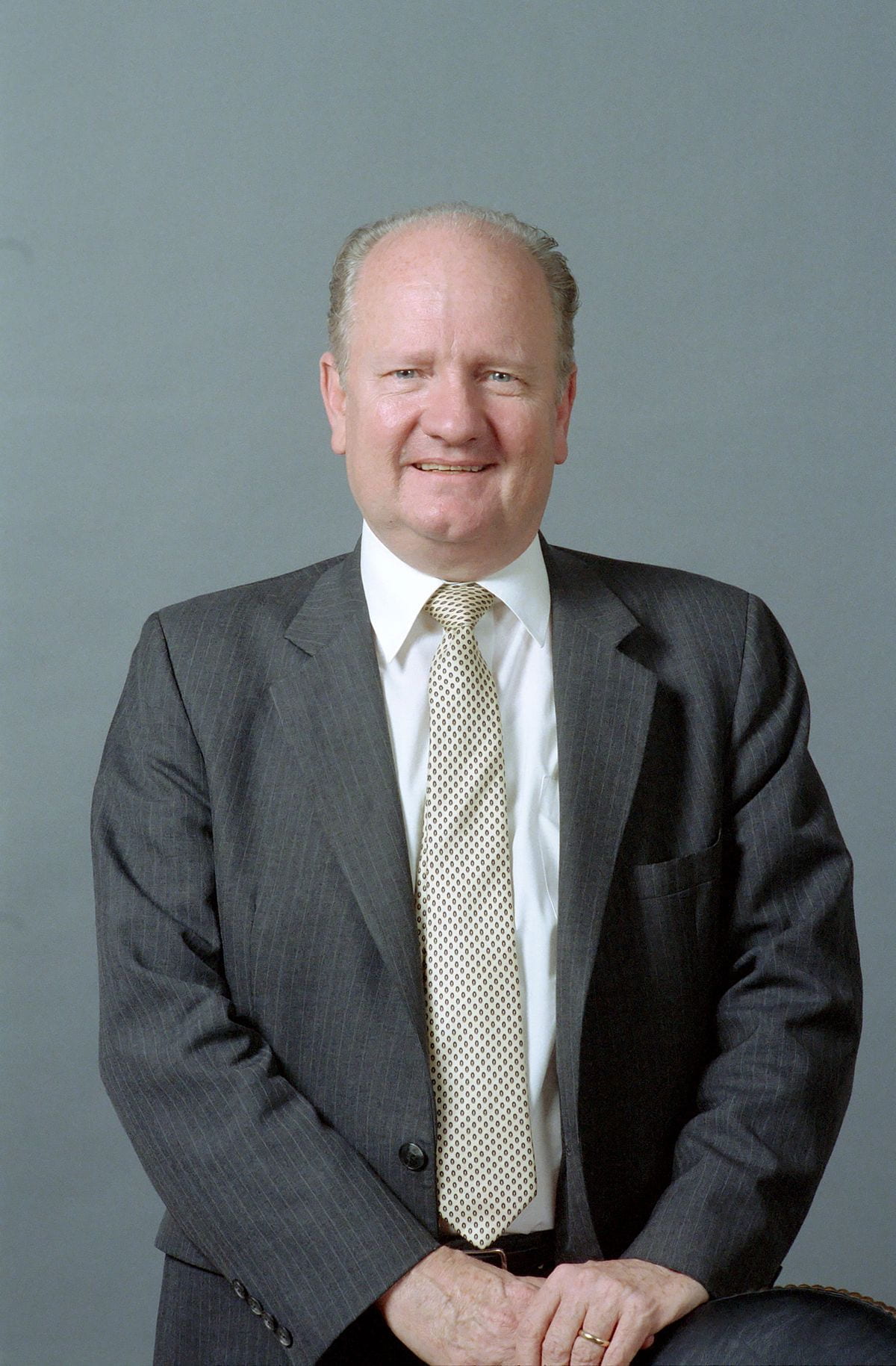
It is no secret that the Elliott School of International Affairs (ESIA) is one of The George Washington University’s most prestigious schools, and the Sigur Center is proud to have been its helm for Asian studies since 1991. Today, the Sigur Center coordinates the largest Asian Studies program in metro DC area, and has long established their reputation for exceptional education, academic and policy research both at home and abroad. But what does the “Sigur” in Sigur Center stand for, and who is the man who started it all?
Gaston Sigur was born in Louisiana in 1924. At the age of 19, Sigur joined the US Army, where he was pulled from the ranks to study Japanese, irreversibly launching his career in East Asian studies. After World War II, Sigur returned to the US and received his Ph.D. in Japanese History from the University of Michigan in 1957. He was then employed for many years by the Asia Foundation, with postings across the globe including Afghanistan, Japan, and Washington, D.C. It was not until 1972 that Sigur arrived at George Washington University to teach and direct the Institute for Sino-Soviet Studies. While serving in this position, Sigur wrote several major works on U.S. foreign policy in Asia and was a regular contributor to Orbis, a leading journal of world affairs.
On January 24, 1986, Sigur was nominated by President Reagan as Assistant Secretary of State for East Asian and Pacific Affairs. In this position, Sigur is widely credited for having negotiated advantageous economic deals for the United States with Japan — even as he strengthened the overall US-Japan alliance — and for promoting the democratization of the Republic of Korea via his personal and forceful interaction with South Korean President Chun Doo-hwan. After the 1988 election, Sigur went on to serve as Assistant Secretary under President George H.W. Bush and continued to act as an informal adviser for him despite officially stepping down from his position one year later.
In 1989, Sigur retired from public service and promptly returned to George Washington University. Although Sigur wished to resume his active involvement with the Institute of Sino-Soviet Studies, in light of the new geopolitical environment after the fall of the Berlin Wall, the George Washington University began to restructure its teaching and programming on Asia and Russia, eventually forming two separate institutes for the study of these regions.
Recognizing Sigur’s contributions to Asian studies, the George Washington University, and public service, the university administration decided to name the new Center for East Asian Studies, established in September 1991, in his honor. Sigur was appointed Senior Counsellor of the Sigur Center, while Professor Young C. Kim was appointed founding director. William R. Johnson, professor of Chinese history, was made Associate Director.
On October 3, 1991, President George H.W. Bush wrote to Sigur to offer his congratulations, stating that “the Center is fitting recognition of your success in promoting stronger ties between the peoples of the United States and East Asia” and that he was “pleased to be counted among your many admirers.” University President Stephen Joel Trachtenberg also commented that “we see the Center as a primary place in the Nation’s capital to educate a new generation of students, scholars, policymakers, and analysts prepared to cope with the expanding role of East Asia.”
After several years of actively promoting the Sigur Center, Sigur passed away in April 1995. His death was intimately felt across the university and within the Center, which noted that “while cognizant that no person can fully replace the leadership, wisdom and contributions of Dr. Sigur, we are now even more determined than ever to continue to strengthen this Center and its role in the academic and policy community of this country as a living testimony in his honor.”
What “Sigur” stands for to the Sigur Center is the continuous dedication to Dr. Gaston Sigur’s legacy of promoting education, academic and policy research, and public service in Asian affairs. It is forever a reminder of our mission and a constant challenge for us to further it. In 2018, together with the GW Institute for Korean Studies (GWIKS), the Sigur Center received the prestigious designation of National Resource Center (NRC) for East Asian Studies from the U.S. Department of Education. Sigur Center for Asian Studies has also evolved from focusing solely on East Asia to covering the entire region of Asia.
This year, we honored our namesake, Dr. Gaston Sigur, with the 24th Annual Gaston Sigur Memorial Lecture, which featured Dr. Sunil Amrith as the distinguished speaker discussing the topic of “Water and the Making of Modern India.”


